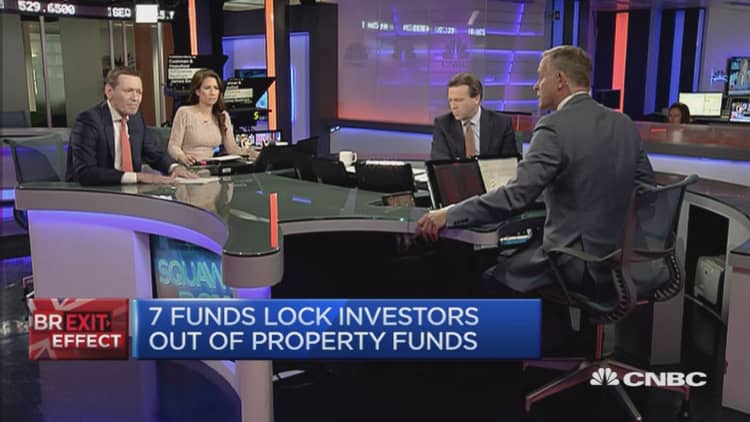Nothing appeals more to individual investors than being able to invest like the big endowment funds, the investment banks and the hedge funds that dominate the financial markets. Those big players have access to any asset class, any trading strategy and any geographic market.
The asset management industry has been successfully tapping that desire for investment alternatives since the financial crisis decimated retail investors' portfolios of traditional stocks and bonds.
The evolution of investment products and investing strategies typically follows a path from the institutional market to the retail investor landscape — primarily in the form of mutual funds and exchange-traded funds. New flavors of mutual funds, investment trusts and publicly traded limited partnerships have given retail investors access to assets such as real estate, commodities and investing strategies formerly unavailable to the small investor.
The growth of so-called liquid alt funds that invest in a wide range of alternative assets and hedge fund–like trading strategies has fed off the hunger of individual investors for a broader array of investing options.
The experience of investors with these new products, however, has not been good, and the demand for them has dipped significantly. There are now more than 1,300 alt funds in the market, but assets under management totaled $175 billion at the end of April, versus the peak of $183 billion in August 2014, according to data from research firm Morningstar. What's more, the pipeline of new offerings is starting to dwindle.
"Last month was the first time since April 2011 that there were no new alt fund launches in the market," said Jason Kephart, a fund analyst at Morningstar. The Securities and Exchange Commission's deliberations on the use of derivatives by publicly traded funds is one reason for the slowdown, but there's also the performance to consider.
"The low-return environment and the relatively high fees of alt funds is a tough combination," Kephart said. "Performance hasn't lived up to what people expected."
Consider that the one-year returns for long/short equity funds and multi-alternative strategy funds — two of the most popular alt fund categories — are –5.3 percent and –5.0 percent, respectively. That compares to a return of 1.7 percent on the . The performance records for virtually all alt fund categories across three- and five-year horizons are equally bad.
Retail investors are sold products. That's not how an institution approaches investing.Mansi SinghalCEO of qplum
"The [alt] funds have been a mixed bag," said Don Steinbrugge, head of Agecroft Partners, an institutional investment consultant and third-party marketer of hedge funds. "Some have done well, but many have not."
The problem in many cases is that hedge fund strategies that focus on illiquid assets or employ significant leverage don't work well in a mutual fund format. Many of the hedge fund managers that have come to the retail market with 40 Act funds are not managing them in the same way, and while performance figures in the opaque hedge fund space are hard to confirm, industry experts say the alt fund returns are in many cases much lower than those of the hedge funds they partially mimic.
"It's crucial that investors understand the investing process of these funds," Steinbrugge said. "They need to know what market inefficiencies the fund is going after and how they capture them.
"If you don't understand that, don't invest," he added.
The performance experience isn't the only difference between large and small investors.

"Institutional and retail investors are miles apart," said Mansi Singhal, CEO of qplum, a platform providing quantitative-trading strategies often employed by institutions to retail investors with as little as $10,000. Singhal, a former trader with hedge fund Brevan Howard, said the difference is less about the products and strategies available to each group as the overall approach to investing.
"Retail investors are sold products," said Singhal, who launched her firm in February. "That's not how an institution approaches investing.
"They start with a mandate and target a return for a given amount of capital," she added. "They then set their risk limits and determine what strategies they'll use to achieve their objective."
She says Qplum offers three broad investing styles: market allocation, risk parity and momentum investing. The firm uses quantitative research and trades roughly 40 exchange-traded funds. Singhal admits her institutional approach to investing presents a marketing challenge with individual investors.
"People hear 'quantitative' and they get scared,' she said. "They think it's a black box, but it's not.
"I like to refer to [our methodology] as a glass box," Singhal added. "People don't need to know all the details of how it works as long as they understand how strategies will behave in different scenarios."
Jeff Walker, director of qualitative research for RIA Global Financial Private Capital, suggests that individual investors should not be so eager to use "institutional" strategies and products. Instead, they should adopt the disciplined approach to investing that most institutions have.
"It's more a frame of mind than a product issue," said Walker, whose firm manages $5.8 billion in assets. "The most valuable tool that retail investors can have is a goals-based approach to investing that fits with their budget and future income and retirement needs.
"We don't think it's wise for individuals to be investing in levered funds or obscure asset classes."
While the latest fund tapping a new asset class or institutional trading strategy might look like a great idea, think hard before jumping in. "Beware the hot new thing no matter how cool it sounds," suggested Kephart at Morningstar.
— By Andrew Osterland, special to CNBC.com




